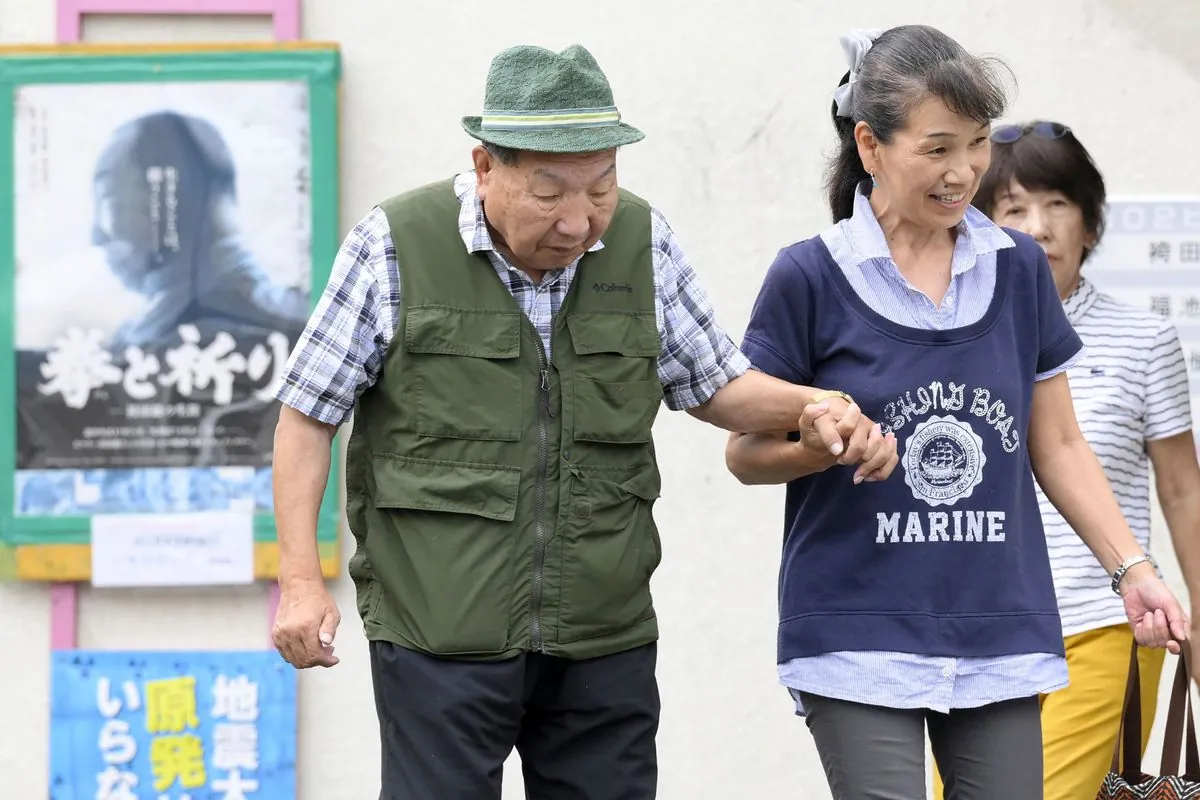Iwao Hakamada, 88, has been acquitted of a quadruple murder after spending 57 years as the world's longest-serving death row inmate. The Shizuoka district court in Japan declared him innocent on September 26, 2024, marking the end of a decades-long legal battle.
In 1966, Hakamada was arrested for the murder of his boss, the man's wife, and their two teenage children. The case hinged on blood-stained trousers found in a miso tank in 1967. Hakamada initially confessed under intense questioning but later recanted, claiming police coercion.
Japan's criminal justice system, known as "hostage justice," has been criticized for its reliance on confessions and long detentions. Suspects can be held for up to 23 days without charge, and the system has a staggering 99% conviction rate. False confessions are a significant problem, with only 0.5% of cases going to trial.
In 2014, DNA evidence emerged questioning the reliability of Hakamada's conviction, leading to his release pending a retrial. The legal process in Japan is notoriously slow, with retrials being extremely rare. The average time spent on death row is 7 years, making Hakamada's case exceptional.
Hideko Hakamada, 91, Iwao's sister, has campaigned tirelessly for his acquittal. She bowed in gratitude to Judge Koshi Kunii upon hearing the verdict. The case has reignited calls for Japan to abolish the death penalty, a practice it shares only with the United States among G7 nations.
As of 2024, Japan has 107 inmates on death row. The country's last execution was in 2022, carried out by hanging. Prisoners are typically notified of their execution only hours in advance, a practice that has drawn international criticism.
Hakamada's mental health has deteriorated over the years. His sister reports that he now "lives in his own world," rarely speaking or showing interest in others. This highlights the profound impact of prolonged death row confinement on inmates' psychological well-being.
Amnesty International welcomed the verdict, calling it "an important recognition of the profound injustice he endured for most of his life." The organization also used this opportunity to advocate for reform in Japan's justice system and the abolition of capital punishment.
Japan introduced DNA testing in criminal investigations in 1989, and a jury system was implemented in 2009. However, critics argue that these changes have not adequately addressed the systemic issues within the country's criminal justice framework.
The United Nations has criticized Japan's justice system, and the Japan Federation of Bar Associations has called for the abolition of the death penalty. As Hakamada's case concludes, it serves as a powerful reminder of the potential for miscarriages of justice and the irreversible nature of capital punishment.
"I'm fighting a bout every day. Once you think you can't win, there is no path to victory."
This landmark case has not only secured justice for Iwao Hakamada but also sparked a crucial debate on the need for comprehensive reform in Japan's criminal justice system and a reevaluation of its stance on the death penalty.
